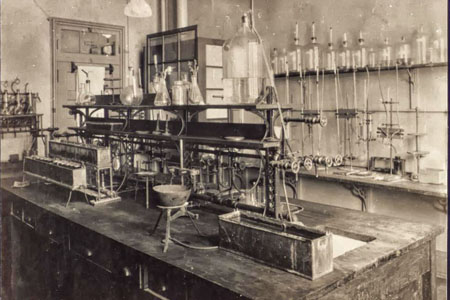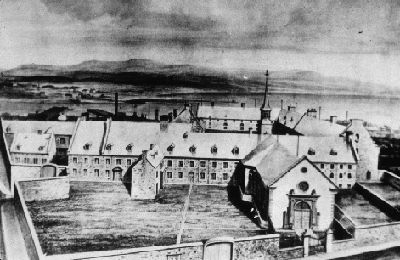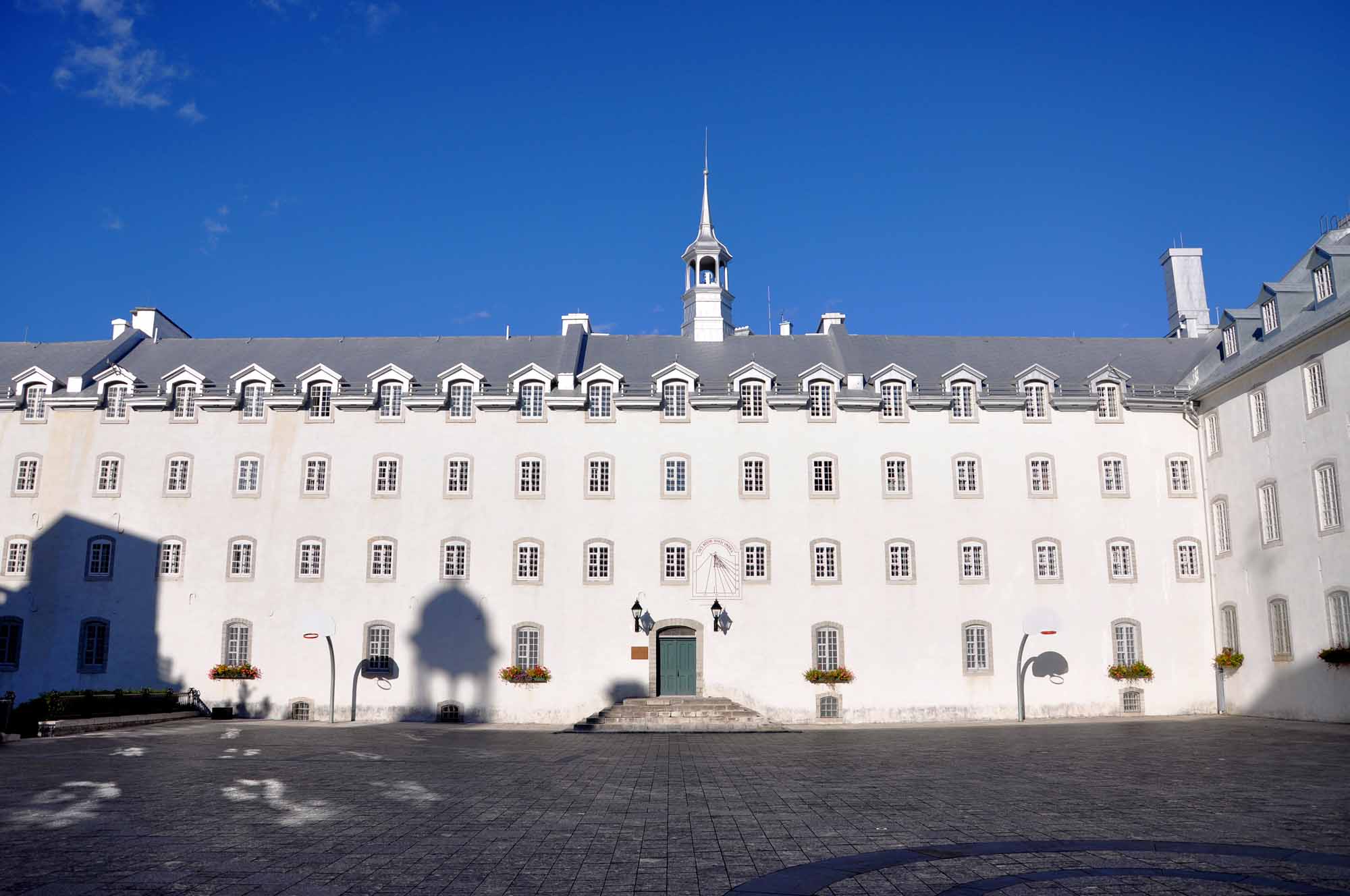Emmanuel-Persillier Lachapelle, physician, editor and administrator (born 21 or 23 December 1845 in Sault-au-Récollet, Quebec; died 1 August 1918 in Rochester, Minnesota). Lachapelle began his career as a physician at the Hôtel-Dieu de Montréal in 1869. He was one of the founding members of the review L’Union médicale du Canada and a founding member of the Hôpital Notre-Dame in Montreal.

Youth and Education
Emmanuel-Persillier Lachapelle’s ancestor, Étienne Persillier, dit Lachapelle, came from Périgord, France. He settled in New France in 1685. Emmanuel-Persillier Lachapelle’s father, Pierre Persillier, dit Lachapelle, was a merchant, country gentleman and mayor.
Did you know?
Inserting the French word dit (from dire, meaning “to say”) prior to a name is a practice that started in France and came to New France. When used in front of a name, dit indicates a nickname that was added to a surname. These nicknames were often used to differentiate families. Surnames and dit nicknames can be found in records and over time some individuals adopted surnames or dit nicknames. The lineage of Emmanuel Persillier-Lachapelle shows that Lachapelle was once a nickname.
Emmanuel-Persillier Lachapelle received his formal education at the Petit Séminaire de Montréal, and his medical training at the École de médecine et de chirurgie de Montréal, which at the time was attached to Victoria College in Cobourg, Ontario (which became affiliated with the University of Toronto in 1890). It is important to note that the Université de Montréal was not founded until 1878 (and did not bear its name until 1919). At the time, French-language university education was carried out exclusively by Université Laval and other institutions such as the École de médecine et de chirurgie de Montréal. University studies in Montreal were conducted on campuses of the Université Laval in Montreal. The Université Laval fought tooth and nail to retain its dominance. In the battle between the École de médecine et de chirurgie de Montréal and Université Laval over the establishment of a medical faculty in Montreal, Dr. Lachapelle chose to teach at the new campus of Université Laval in 1878 (See also Medical Education).
Early Career at the Hôtel-Dieu de Montréal
In 1869, Dr. Emmanuel-Persillier Lachapelle, a recent medical graduate, began practicing at the Hôtel-Dieu de Montréal and became an associate of the president of the École de médecine et de chirurgie de Montréal (see Hôtel-Dieu). After two years of practicing medicine, Lachapelle established the Société médicale de Montréal with other physicians. The Société médicale de Montréal went on to found the review L’Union médicale du Canada. The first issue of the journal was published on 1 January 1872. Lachapelle was editor-in-chief from 1876 to 1877, and a member of the editorial board from 1878 to 1882.
In addition to his medical and journalistic work, Lachapelle also became involved in politics. In 1873, he supported Louis Riel’s candidacy in the federal by-election for the Provencher riding in Manitoba.
Founding of the Hôpital Notre-Dame in Montreal

From 1878 to 1891, Emmanuel-Persillier Lachapelle was Secretary of the Faculty of Medicine at Université Laval in Montreal (see Université de Montréal). He also taught general pathology and physiology there from 1879 to 1880. Drawing on his experience as a physician, secretary, professor and founder of the Société médicale de Montréal and the review L’Union médicale du Canada, he fulfilled a dream of his own: founding a university hospital. In 1880, he became a founding member of Montreal’s Hôpital Notre-Dame. He enlisted the help of Sulpician priest Benjamin-Victor Rousselot of the Notre-Dame parish (who wanted to see the hospital established in his parish), as well as Mother Julie Haineault-Deschamps of the Congregation of the Sisters of Charity (see Grey Nuns). Montreal’s Hôpital Notre-Dame was the first French-speaking secular hospital (see Secularism in Quebec). The physicians were in charge of medical management and university teaching, while the Sisters of Charity were in charge of patient care as well as the management and internal organization of the hospital. Lachapelle was the driving force behind this great hospital for the rest of his life.

From 1888 to 1889, he taught forensic medicine and comparative pathology at the École vétérinaire française de Montréal (Montreal French Veterinary School), founded in 1886. (See also Medical Education.)
Public Health
From the very beginnings of the Hôpital Notre-Dame, Emmanuel-Persillier Lachapelle gave the hospital a mission to protect health and made a name for himself in the fields of prevention and public health. He was president of the Conseil d'hygiène de la province de Québec from 1887 until his death. In 1902, he became one of the founders of the Ligue antituberculeuse de Montréal (see Tuberculosis). He played a leading role in advocating for state intervention to enforce sanitary measures of isolation and disinfection, regulate the trade of food, meat and milk, and provide standards for hygiene in schools.
A Physician Above All
In addition to his teaching, humanitarian and social commitments, Emmanuel-Persillier Lachapelle was always dedicated to the medical profession. In 1877, barely eight years after receiving his medical degree, he became a member of the Board of Directors of the Collège des médecins et chirurgiens de la province de Québec; he was president from 1898 to 1907. True to his political ideals, Lachapelle became general president of the Association Saint-Jean-Baptiste de Montréal in 1887 (see Société Saint-Jean-Baptiste).
Lachapelle died on 1 August 1918, after living a full life. He remained a bachelor, likely because he devoted all his time to his work, as was common at the time.
Legacy and Public Recognition
In recognition of his great commitment to public health, the Quebec government created the prix Reconnaissance de carrière Persillier-Lachapelle. These awards pay tribute to individuals who have worked to improve health and social services.
In 1980, Canada Post issued a stamp in honour of Emmanuel-Persillier Lachapelle.

 Share on Facebook
Share on Facebook Share on X
Share on X Share by Email
Share by Email Share on Google Classroom
Share on Google Classroom











